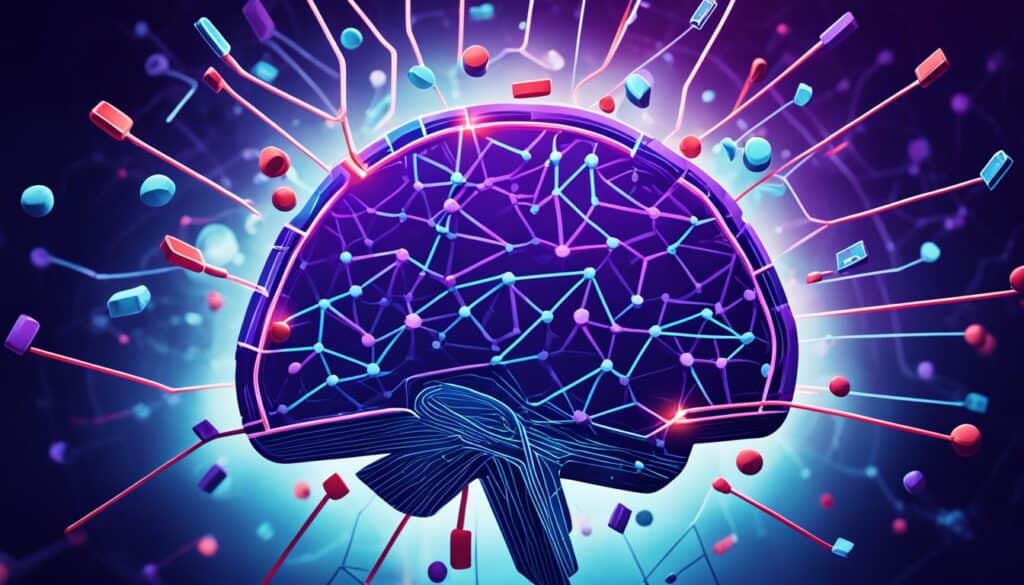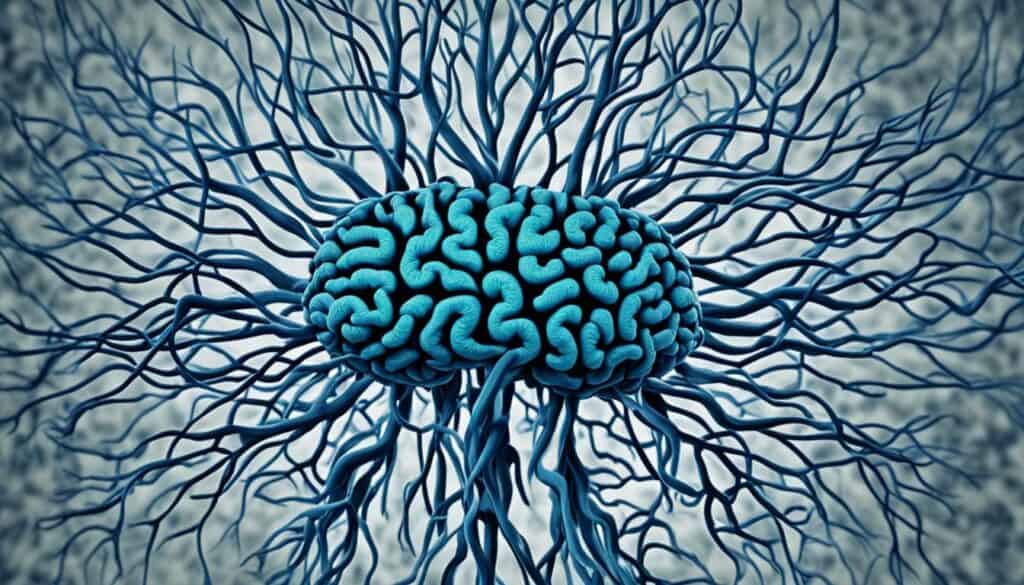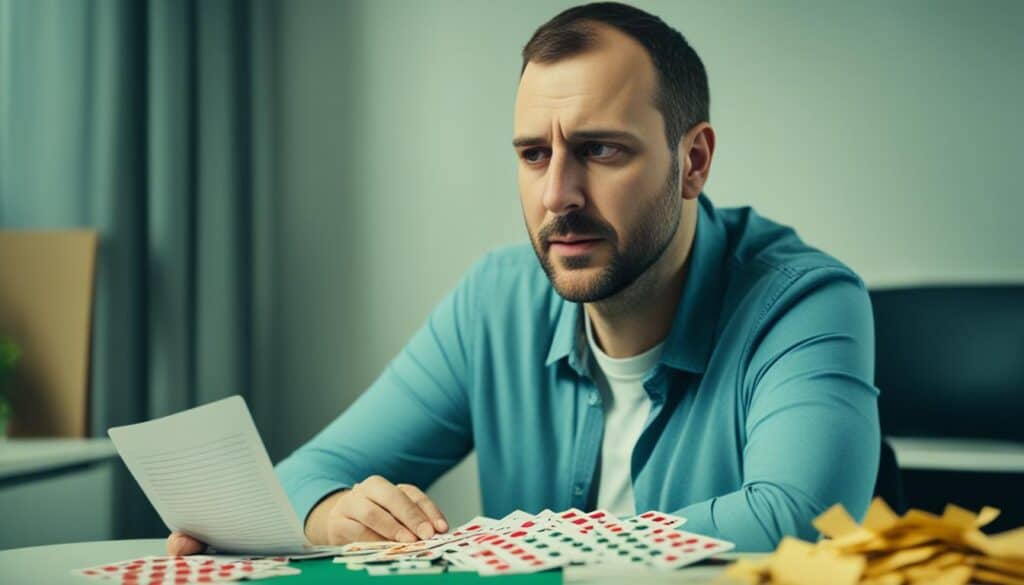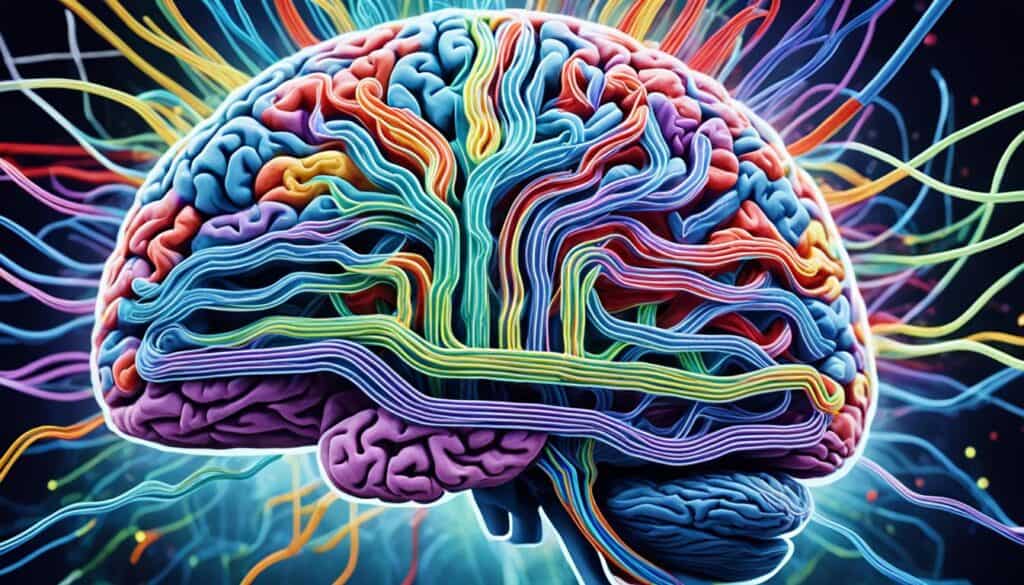The psychology of betting is a fascinating field that delves into the depths of the gambler’s mind. Whether it’s placing a friendly wager or diving into high-stakes gambling, understanding the psychological aspects of betting is essential for both players and operators.
Recreational gamblers are driven by the thrill of the game, the challenge of skill-based activities, and the social camaraderie that comes with gambling. On the other hand, problem and pathological gamblers exhibit unhealthy behaviors that stem from motivations such as escapism, the illusion of control, chasing losses, and the desire to win big.
Research has shown that problem gambling is hardwired into the brain, leading to a better understanding of the cognitive biases and addictive tendencies present in gambling behaviors. Factors like age and gender also play a role in how individuals engage with gambling activities.
By unraveling the psychology of betting, we can shed light on the underlying motivations and cognitive processes that drive individuals towards healthy or problematic gambling habits. This knowledge can help both individuals and operators develop strategies to promote responsible gambling and create a safer betting environment.
Key Takeaways:
- The psychology of betting explores the motivations and behaviors of gamblers, both recreational and problematic.
- Problem gambling is hardwired into the brain and influenced by factors such as age and gender.
- Understanding the cognitive biases in gambling can help promote responsible gambling practices.
- Research has shown that cognitive-behavior therapy is an effective treatment for gambling addiction.
- Creating a safe betting environment requires a combination of individual self-control and operator responsibility.
Reasons People Gamble

People gamble for various reasons, driven by a combination of motivations and desires. For many, gambling is a form of entertainment, providing enjoyment, excitement, and the thrill of taking risks. It offers an opportunity to socialize and connect with others, creating a sense of camaraderie and shared experiences.
Some individuals also gamble to impress others or to gain access to exclusive perks and high roller treatment in casinos. The allure of luxurious accommodations, fine dining, and VIP treatment can be a powerful motivator for some gamblers.
The challenge of skill-based games is another reason why people gamble. They enjoy testing their abilities, strategizing, and competing against opponents. Skill-based games such as poker and blackjack offer a sense of control and mastery that can be deeply satisfying for those who enjoy the mental engagement and tactical decision-making.
“Gambling is a universal human activity, and various motivations drive individuals to participate in it.”
The majority of gamblers fall into the category of recreational players. They approach gambling as a leisure activity and play responsibly, without experiencing compulsions or distress. These individuals view gambling as a form of entertainment and set limits on their time and money spent, ensuring that it remains an enjoyable and controlled pastime.
“Recreational gamblers engage in responsible gambling practices and play without harming themselves or others.”
The motivations mentioned above serve as a baseline for understanding healthy gambling behavior. However, it is important to note that not all gamblers fall into this category. Problem and pathological gamblers exhibit different patterns of behavior, driven by deeper motivations and psychological factors. Understanding these distinctions is crucial for identifying and addressing problematic gambling habits.
An Example of Motivations: Impressing Others
One example of a motivation for gambling is the desire to impress others. Some individuals may place larger bets or take higher risks in the hopes of showcasing their wealth, skill, or daring nature. They seek recognition and validation from their peers and may perceive gambling as a means to elevate their social standing.
However, this motivation can lead to harmful behaviors, such as excessive spending, chasing losses, and developing a false sense of superiority or invincibility. It is important for individuals to reflect on their underlying motivations for gambling and ensure that they are engaging in the activity for healthy reasons.
Scientific Research on the Psychology of Gambling

Scientific research plays a crucial role in understanding the mental processes of problem and pathological gamblers. Through behavioral and neurological analysis, researchers have gained insights into the thought processes that lead to problem gambling.
Studies have revealed that individuals with gambling addictions exhibit addictive behaviors similar to those of alcoholics and drug addicts. This significant finding highlights the complex nature of pathological gambling and the need for a multidimensional approach to its treatment.
Among the prominent researchers in this field is Dr. Marc Potenza of the Yale School of Medicine. His groundbreaking studies have shed light on how gambling affects the brains of pathological gamblers differently from recreational gamblers. By utilizing advanced imaging techniques, Dr. Potenza has provided valuable insights into the unique neural mechanisms underlying gambling addiction.
The results of scientific research on gambling have far-reaching implications for the development of effective interventions and treatment strategies for pathological gambling. By understanding the underlying mental processes and neural pathways involved, experts can design targeted therapies to help individuals overcome the grip of gambling addiction.
When Does Gambling Become a Problem?

Problem gambling occurs when a gambler exhibits risk factors and behaviors that indicate a loss of control. It is important to recognize the warning signs of gambling addiction to prevent it from escalating further. According to the Diagnostic and Statistical Manual of Mental Disorders, there are 9 common indicators of compulsive gambling:
- Escaping problems or relieving negative emotions through gambling.
- Believing in the illusion of control over the outcome of games.
- Being motivated by the thrill of winning money.
- Continuously chasing losses in an attempt to recover previous losses.
- Experiencing restlessness when attempting to cut back or stop gambling.
- Lying to family and friends about the extent of gambling activities.
- Using gambling as a way to cope with stress or other life difficulties.
- Risking important relationships, opportunities, or financial stability because of gambling.
- Experiencing distress, financial hardship, bankruptcy, depression, or suicidal thoughts due to gambling.
Problem gamblers may exhibit mixed behaviors, alternating between responsible and problematic gambling habits. However, pathological gamblers are fully in the grip of addiction and may experience severe consequences.
“Problem gambling is an insidious issue that can devastate individuals and their loved ones. Recognizing the early warning signs and seeking help is crucial for preventing further harm.”
2003 Study on Pathological Gamblers

In a groundbreaking 2003 study conducted by Yale researchers, the hardwiring of pathological gambling into the brain was revealed. Led by Dr. Marc Potenza, the study employed neurological research to shed light on how the brains of problem and pathological gamblers react differently to gambling stimuli. The findings demonstrated that images of gambling resulted in an elevated and prolonged response in the brains of pathological gamblers compared to recreational gamblers.
This research provides crucial insights into the neurology of gambling addiction, highlighting the distinct brain activity exhibited by individuals suffering from pathological gambling. Understanding the underlying neurobiological mechanisms is vital for developing effective treatments and interventions for those struggling with gambling addiction.
2013 Study of Gender Roles in Gambling

A 2013 study conducted by Dr. Marc Potenza’s team delved into the gender differences in gambling and the corresponding brain activity observed in male and female gamblers. This study sought to understand how gender may influence gambling behavior, particularly in relation to problem gambling.
The findings showed that male gamblers are 11% more likely to develop problem gambling compared to their female counterparts. Both male and female gamblers exhibited increased brain activity while gambling. However, the study revealed some intriguing distinctions in brain activity patterns.
“The brain responses of recreational gamblers of both genders and females with gambling disorder returned to normal levels soon after gambling ended. However, males with gambling disorder displayed extended periods of increased brain activity.”
This distinction in brain activity between genders may signify inherent differences in how male and female gamblers’ brains respond to gambling stimuli. Further research is needed to fully grasp the underlying mechanisms and implications of these findings.
Is Age a Factor in Problem Gambling?

Age plays a significant role in problem gambling, with the highest risk observed in the 18-29 age group. Research has shown that the human brain undergoes development until the age of 25, and individuals in the younger age group often exhibit lower levels of self-control and risk assessment. This heightened vulnerability makes them more susceptible to developing problematic gambling behaviors.
It is during this period that the propensity for forming both good and bad habits is heightened. As a result, young adults in the 18-29 age group are more likely to adopt unhealthy gambling behaviors, putting them at an increased risk of developing gambling addiction.
Understanding the influence of age is crucial in addressing and preventing problem gambling. By targeting education and prevention efforts towards this vulnerable age group, we can equip young adults with the necessary knowledge and tools to make informed decisions and develop responsible gambling habits.
How the Brain Forms Good and Bad Habits

The human brain is a fascinating and complex organ that continues to develop until the age of 25. During this critical period of brain development, habits are formed based on thoughts and actions. Habits are like pathways in the brain, reinforcing certain neural connections while pruning away unused ones. This process plays a significant role in the development of both good and bad habits.
When it comes to gambling, the formation of habits in the brain can have a profound impact. In the 18-29 age group, individuals are more prone to developing reckless behavior, including gambling addiction. This heightened susceptibility is due to the brain’s inclination to form habits during this developmental stage.
Whether it’s the thrill of a win or the escape from reality that gambling provides, the brain can become wired to seek out these experiences repeatedly. This repetition strengthens the neural connections associated with gambling, making it easier for the brain to slip into a pattern of addictive behavior.
In understanding how the brain forms good and bad habits, it becomes apparent that early intervention is crucial in preventing or addressing gambling addiction. By focusing on promoting healthy habits and responsible gambling practices during the developmental years, individuals can mitigate the risks associated with problematic gambling behavior.
It is important to acknowledge that the brain’s plasticity and its ability to form and change habits extends throughout adulthood, albeit with decreasing flexibility. This means that even for those who have developed harmful gambling habits, there is still hope for recovery and the opportunity to develop healthier patterns of thinking and behavior.
By providing education and support for individuals of all ages, we can foster responsible gambling practices and empower individuals to regain control over their gambling behaviors.
Treatments for Problem Gambling

Cognitive-behavior therapy (CBT) has proven to be a highly effective treatment for gambling addiction. This therapeutic approach helps individuals identify and modify the negative thoughts, emotions, and behaviors that contribute to their addictive gambling patterns.
During CBT sessions, individuals learn techniques to resist unwanted gambling thoughts, develop healthier coping mechanisms, and replace gambling behaviors with more positive activities. CBT also focuses on improving problem-solving skills and enhancing self-control.
However, despite the effectiveness of CBT, it is disheartening to note that only about 20% of problem gamblers seek professional treatment. Many individuals often only seek help when faced with severe financial distress or bankruptcy.
One major barrier to accessing treatment is the cost. Addiction treatment can be expensive and may not be affordable for everyone struggling with gambling addiction. This highlights the urgent need to provide accessible and affordable treatment options for problem gamblers.
It is crucial to raise awareness about the benefits of CBT and other evidence-based treatments for gambling addiction. Greater access to affordable treatment options is essential in combating the harmful impacts of problem gambling and improving the lives of affected individuals and their families.
Against the Odds – The Paradox of Gambling

Gambling is a paradoxical behavior. Despite the odds always being in favor of the house, ensuring a steady profit for the casinos and bookmakers, people, including problem gamblers, continue to play. This paradox raises the question: why do people gamble when the odds are against them?
Dr. Luke Clark’s research focuses on understanding the different ways in which gamblers overestimate their chances of winning. One factor is the effects of near-misses, where individuals perceive these near-wins as almost achieving the desired outcome, leading them to believe they are closer to winning than they actually are. Additionally, the belief in personal control also contributes to the paradox. Some gamblers believe that their choices and skills can influence the outcome, even in games purely based on chance.
“The paradox of gambling lies in the complex interplay between cognitive biases, the illusion of control, and the desire for excitement and potential rewards,” says Dr. Luke Clark.
Despite the knowledge that the odds are against them, individuals are driven by the allure of potential rewards, the excitement of the game, and the belief that they can beat the odds. This paradox of gambling highlights the powerful influence of psychological factors on human behavior, even in situations where rationality might dictate otherwise.
Imaging the Gambling Brain

Advances in brain imaging technology have revolutionized the study of the gambling brain. Researchers now have the ability to observe and analyze the neural activity of gamblers in real-time, providing valuable insights into the mechanisms underlying gambling behaviors. One area of particular interest is the role of the striatum in the brain’s reward circuitry.
The striatum, located near the center of the brain, is a critical component of the brain’s reward system. It plays a key role in processing rewards and reinforces certain behaviors that lead to positive outcomes. In the context of gambling, the striatum is activated when gamblers experience monetary wins, reinforcing the rewarding nature of the activity.
Dr. Luke Clark, a leading researcher in the field of gambling addiction, has utilized functional magnetic resonance imaging (fMRI) to investigate the brain activity of gamblers. By using fMRI, Dr. Clark is able to measure and map the neural responses to various gambling stimuli, such as near-misses and personal choice during a gambling task.
Through his research, Dr. Clark aims to understand how the brain processes these specific gambling experiences and how they contribute to the development and maintenance of gambling behavior. By studying the striatum and other regions of the reward circuitry, researchers hope to gain a deeper understanding of the neural mechanisms underlying gambling addiction.
Ultimately, the insights gained from brain imaging studies have the potential to inform the development of more effective treatment strategies for gambling addiction. By targeting specific neural pathways and processes, researchers and clinicians may be able to design interventions that help individuals regain control over their gambling behaviors and reduce the risks associated with excessive gambling.
Hallmarks of Addiction – Emotional Impacts and Risk Perception

Emotions play a significant role in gambling, shaping betting decisions and influencing outcomes. Positive emotions, such as excitement and anticipation, can lead to overconfidence and impulsive choices. On the other hand, negative emotions like fear and frustration can trigger risk aversion or the urge to chase losses.
For many gamblers, the emotional highs and lows experienced during a gambling session can have a profound impact on their behavior. A series of wins can create a sense of euphoria, pushing the individual to continue gambling in hopes of sustaining the winning streak. Conversely, the agony of losses may drive some gamblers to make irrational decisions in an attempt to recover their losses.
“The emotional rollercoaster that accompanies gambling can cloud judgment and impair decision-making abilities. It’s crucial for gamblers to be aware of their emotions and exercise control over their impulses,” advises Dr. Jane Phillips, a renowned psychologist specializing in addictive behaviors.
Risk perception is another crucial factor that influences gambling behavior. It refers to the individual’s subjective assessment of the likelihood and potential consequences of specific betting decisions. Risk perception varies from person to person, influenced by cognitive processes and personal experiences.
Research has shown that individuals may have different risk-taking tendencies, with some being more risk-averse while others are more comfortable with taking risks. The perception of risk can be further affected by factors such as self-confidence, familiarity with the game, and past gambling outcomes.
Recognizing the role of emotions and risk perception can help gamblers make more rational and responsible choices. Being mindful of their emotional state and understanding the potential biases that can arise from it, individuals can make informed decisions without falling prey to impulsive gambling habits.
Overall, understanding the emotional influences on gambling and the impact of risk perception is crucial for anyone engaging in betting activities. By recognizing and managing these psychological factors, individuals can enhance their ability to make rational decisions, minimize the risk of problem gambling, and enjoy gambling responsibly.
Responsible Gambling and Self-Control

Responsible gambling practices and self-control are vital components of maintaining a safe and sustainable betting environment. By adopting responsible gambling practices, individuals can ensure their betting activities remain enjoyable and within healthy boundaries. Setting limits on both the time and money spent on gambling can help prevent excessive and impulsive behavior.
In addition to personal responsibility, operators also play a crucial role in promoting responsible gambling. They can provide information about the risks associated with gambling and implement tools that encourage self-awareness and self-control. This includes offering self-exclusion programs and cooling-off periods, giving individuals the opportunity to take a break from gambling if they feel it is necessary.
Ultimately, responsible gambling requires individuals to have the self-control to make informed decisions about their betting activities. By setting and adhering to limits, recognizing when gambling is becoming problematic, and seeking support when needed, individuals can enjoy gambling as a form of entertainment while minimizing the risks associated with addictive behaviors.
It is important to remember that gambling should always be approached with caution and moderation. While it can be an enjoyable pastime, excessive gambling can lead to financial and emotional distress. By practicing responsible gambling and exercising self-control, individuals can ensure they maintain a healthy balance between enjoyment and responsible behavior.
Help for Problem Gamblers
For problem gamblers, seeking help and support is crucial in overcoming gambling addiction. However, many individuals may not actively seek treatment, underlining the need for accessible resources and support systems. One effective form of treatment for gambling addiction is cognitive-behavior therapy, which has shown significant success in helping individuals break free from their addictive gambling behaviors.
Operators within the gambling industry can also play a vital role in providing support and resources for problem gamblers. By implementing responsible gambling practices and offering programs for self-exclusion and self-control, operators can contribute to creating a safer gambling environment for their users.
On an individual level, recognizing one’s own gambling habits and taking proactive steps to address them is essential. This can involve seeking professional help, joining support groups, or utilizing online resources specifically designed for problem gamblers. Additionally, practicing responsible gambling and maintaining self-control are key aspects of developing a healthy relationship with betting.
By combining the efforts of operators, individuals, and support services, problem gamblers can find the assistance they need to effectively address their gambling addiction and work towards a healthier future.
FAQ
What is the psychology of betting?
The psychology of betting refers to the study of the mental processes and behaviors of gamblers, including their motivations, decision-making processes, and cognitive biases.
What are the different reasons people gamble?
People gamble for various reasons, including enjoyment, excitement, camaraderie, impressing others, high roller treatment, and the challenge of skill-based games.
What does scientific research say about the psychology of gambling?
Scientific research on the psychology of gambling has focused on understanding the mental processes of problem and pathological gamblers, revealing addictive behaviors similar to alcoholics and drug addicts.
When does gambling become a problem?
Gambling becomes a problem when a gambler exhibits risk factors and behaviors that indicate a loss of control. Warning signs of problem gambling include escapism, the illusion of control, winning money, and chasing losses.
What did the 2003 study on pathological gamblers reveal?
The 2003 study by Yale researchers showed that pathological gambling is hardwired into the brain, with neurological differences observed between pathological and recreational gamblers in response to gambling stimuli.
What did the 2013 study on gender roles in gambling find?
The 2013 study demonstrated that male gamblers are 11% more likely to develop problem gambling than female gamblers, with differences in brain activity observed during and after gambling.
Is age a factor in problem gambling?
Age is a factor in problem gambling, with those in the 18-29 age group having the highest risk of developing gambling addiction due to the continued brain development and propensity for forming good and bad habits during this period.
How does the brain form good and bad habits?
The human brain continues to develop until the age of 25, with habits forming based on thoughts and actions. The development of good and bad habits is more likely in the 18-29 age group, making them more susceptible to developing problematic gambling behaviors.
What are the treatments for problem gambling?
Cognitive-behavior therapy has been shown to be an effective treatment for gambling addiction, teaching individuals how to resist unwanted thoughts and develop better habits. However, only 20% of problem gamblers seek treatment.
Why do people gamble despite the odds being against them?
Gambling is a paradoxical behavior because the odds are always in favor of the house, ensuring a steady profit for casinos and bookmakers. Despite this knowledge, people, including problem gamblers, continue to play due to various psychological factors such as near-misses and the belief in personal control.
What role does brain imaging play in gambling research?
Advances in brain imaging technology have allowed researchers to study the brain activity of gamblers and better understand the role of different brain regions in reward circuitry. The striatum, in particular, has been found to play a crucial role in the brain’s response to monetary wins in gambling tasks.
How do emotions and risk perception influence gambling behavior?
Emotions play a significant role in gambling, influencing betting decisions and outcomes. Positive emotions can lead to overconfidence and impulsive choices, while negative emotions can trigger risk aversion or loss chasing. Risk perception, shaped by cognitive processes and personal experiences, also influences gambling behavior.
What is responsible gambling and self-control?
Responsible gambling practices and self-control are essential for maintaining a safe and sustainable betting environment. This includes setting limits on time and money spent on gambling, utilizing self-exclusion programs and cooling-off periods, and being aware of the risks involved in gambling.
Where can problem gamblers find help?
Problem gamblers can seek help through resources such as cognitive-behavior therapy, support groups, and treatment centers. It is important for operators to provide support and resources for problem gamblers, and for individuals to recognize and address their gambling habits.
 Online Gaming Circuit
Online Gaming Circuit




